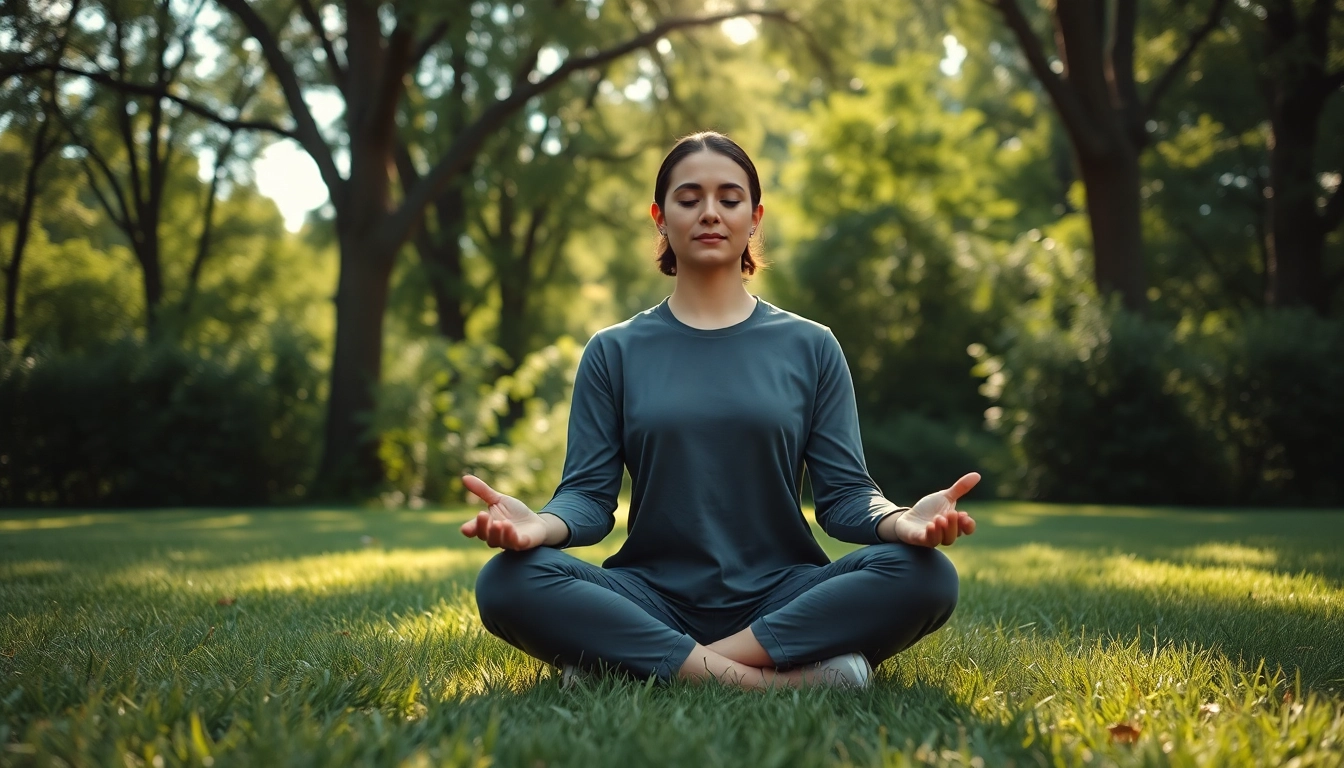Understanding Anxiety: What It Is and How It Affects You
What is Anxiety?
Anxiety is a feeling of worry, fear, or unease that can be mild or severe. It is a natural response to stress, alerting us to potential danger; however, when anxiety becomes overwhelming and persistent, it can develop into an anxiety disorder. Anxiety disorders are the most common mental illnesses in the U.S., affecting millions of adults each year. This condition can manifest in various ways, from general feelings of unease to panic attacks that can be debilitating. When discussing dealing with anxiety, it’s essential to understand its nuanced nature and how it impacts individuals differently.
The Impact of Anxiety on Daily Life
Anxiety doesn’t merely affect feelings; it can have profound repercussions on daily life. Individuals suffering from anxiety may experience difficulty concentrating, disrupted sleep patterns, and fatigue. Social situations can become daunting, leading to avoidance behaviors that further isolate the individual. This cycle can diminish quality of life, hindering personal and professional growth. Chronic anxiety can also contribute to physical health issues such as headaches, digestive problems, and cardiovascular conditions, illustrating the necessity for effective management strategies.
Common Myths About Anxiety Disorders
Despite increased awareness, numerous myths about anxiety persist, complicating understanding and treatment. For instance, some may believe that anxiety is a sign of weakness or that individuals can simply “deal with it” without help. Others may assume that medication is the only solution. In reality, anxiety is a legitimate medical condition with various treatment options, including therapy and lifestyle changes. Dispel these myths to foster a more compassionate and informed conversation around anxiety disorders.
Identifying Triggers: What Causes Anxiety in Individuals?
Personal and Environmental Triggers
Anxiety can stem from a multitude of triggers that vary significantly among individuals. Personal triggers may include past trauma, significant life changes, or ongoing stressors like job challenges or relationship difficulties. Environmental factors, such as noise, chaos, or even weather patterns, can exacerbate feelings of anxiety. Understanding these triggers is vital for individuals attempting to navigate and manage their anxiety effectively.
The Role of Genetics and Biology
Research indicates that genetics and biology play a significant role in anxiety disorders. Individuals with a family history of anxiety or other mental health conditions may be at increased risk. Neurotransmitter imbalances, particularly in serotonin and dopamine levels, can also contribute to anxiety. Recognizing these factors can empower individuals to seek tailored treatment options, while also normalizing their experiences.
Stress and Its Connection to Anxiety
Stress is a significant contributor to anxiety, often serving as a catalyst for its development. Chronic stress—whether from work, family obligations, or financial concerns—can overwhelm the body’s natural coping mechanisms. It is crucial to recognize the connections between stressors and anxiety to develop effective coping strategies. For instance, learning stress management techniques can significantly reduce anxiety’s impact, fostering a more balanced response to everyday challenges.
Proven Techniques for Dealing with Anxiety
Relaxation Techniques: Breathing and Meditation
Relaxation techniques are essential tools for managing anxiety. Deep breathing exercises can calm the nervous system, promoting a sense of control. Techniques like the 4-7-8 method, where individuals inhale for four seconds, hold their breath for seven seconds, and exhale for eight seconds, can help relieve feelings of panic. Likewise, meditation and mindfulness practices enable individuals to anchor themselves in the present, reducing anxiety about future uncertainties.
Cognitive Behavioral Strategies
Cognitive Behavioral Therapy (CBT) is a widely recognized method for treating anxiety disorders. This therapeutic approach focuses on identifying and challenging negative thought patterns that contribute to anxiety. Individuals are encouraged to reframe their thoughts and develop healthier coping mechanisms. For example, instead of succumbing to catastrophic thinking—believing that a perceived threat will result in disastrous outcomes—individuals learn to assess situations more realistically and objectively.
Physical Activities That Help Reduce Anxiety
Exercise is an excellent strategy for dealing with anxiety, as it releases endorphins, which can elevate mood and promote a sense of well-being. Activities such as walking, running, yoga, and strength training can serve as both preventive and responsive measures for anxiety. Regular exercise can mitigate the severity of anxiety symptoms and improve overall health, creating a positive feedback loop that further encourages physical activity.
Seeking Professional Help: When and How to Reach Out
Types of Professionals to Consider
When it comes to addressing anxiety disorders, various professionals can provide the necessary support. Primary care physicians can evaluate symptoms and provide referrals to specialists. Psychologists and psychiatrists, trained in mental health, can offer therapy and prescribe medications when necessary. Social workers and certified counselors can also provide support, focusing on coping strategies and therapeutic relationships. It’s crucial to find a professional with whom you feel comfortable and understood.
Therapeutic Approaches: What to Expect
Engaging with a therapist involves an exploration of feelings, thoughts, and behaviors associated with anxiety. Expect to delve into personal history, discuss triggers, and explore past coping strategies. With the right therapeutic approach, such as CBT or exposure therapy, individuals can learn how to manage their symptoms effectively. Therapy can provide long-term tools for handling anxiety, preparing individuals to face challenging situations outside the therapy room.
Community Resources and Support Groups
Community resources can be invaluable for individuals grappling with anxiety. Support groups provide a safe space to share experiences and learn from others facing similar challenges. Organizations such as the Anxiety and Depression Association of America offer resources and local support networks. Participation in these groups can foster a sense of belonging and reduce feelings of isolation, encouraging a shared journey toward healing.
Long-term Management Strategies for Anxiety Disorders
Building a Personal Coping Toolkit
Creating a personal coping toolkit can be immensely beneficial for managing anxiety over the long term. This toolkit may include a combination of techniques learned through therapy, physical activities, relaxation strategies, and self-care practices. Journaling can help individuals track anxiety patterns and success, while self-soothing activities, such as reading or spending time in nature, can provide immediate relief during stressful moments.
The Importance of Lifestyle Changes
Long-term management of anxiety often requires comprehensive lifestyle changes. Nutrition plays a crucial role in mental health; a balanced diet rich in omega-3 fatty acids, antioxidants, and other essential nutrients can support brain health and reduce anxiety symptoms. Incorporating regular physical health check-ups ensures proactive attention to psychological well-being. Prioritizing sleep hygiene is also essential, as restorative sleep can significantly alleviate anxiety levels.
Continuous Monitoring and Adjustment of Strategies
Anxiety management is not a one-size-fits-all journey; it requires continuous monitoring and adjustments based on individual progress and challenges. Regular self-reflection and tracking methods can help recognize what strategies are effective or require modification. This active engagement empowers individuals to take charge of their mental health, fostering resilience as they encounter new stressors and triggers.








